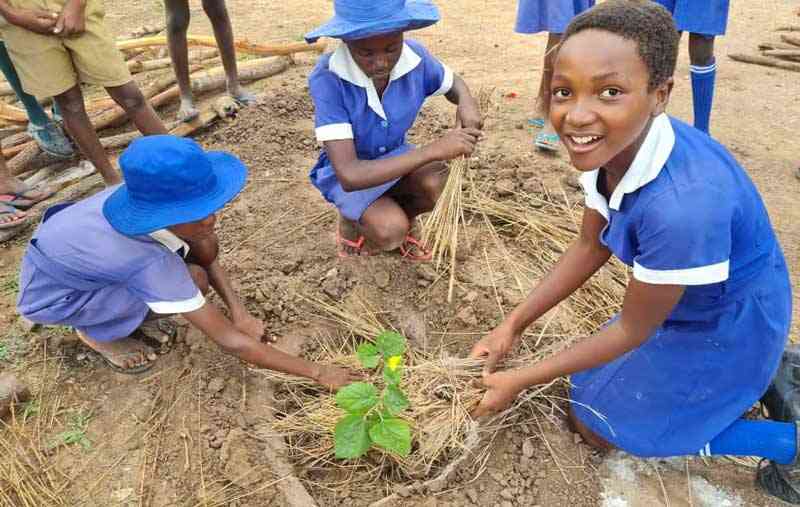
Since Independence in 1980, Zimbabwe has designated the first Saturday of December as National Tree Planting Day to inspire the nation to plant and protect trees, educate the public about the value of forests, promote biodiversity, and guarantee food security.
This year’s celebrations were held under the theme "Trees and Forests for Ecosystem Restoration and Improved Livelihoods”.
The theme is consistent with the European Union funded Sustainable Wildlife Management Programme`s agenda of improving wildlife conservation and food security. The Tree of the year 2022 is Syzigium codartum, water berry, (muhute,umdoni,imiswi).
The onset of each rain season presents hope for a greener environment from blooming and budding trees. It is also the right time to plant trees as not much watering is needed.
The country’s tree planting goal for 2022 stands at 25 million trees, or around 2 trees per person. This is a solution to deforestation and degradation taking place around the country.
According to the Forestry Commission and Environmental Management Agency, about 300,000 hectares of Zimbabwe's forests are lost to deforestation each year, and the ensuing land degradation threatens both wild animals and numerous rural residents whose livelihoods depend on natural resources.
Agriculture, settlement growth, wood energy, brick manufacturing, mining operations, and veld fires are major threats to forests and the environment.
In Binga District of Zimbabwe, three primary schools from wards 3, 4, and 5 — Nsenga Hill, Mucheni, and Sinampande — planted 100 trees, including indigenous and exotic fruit trees, on the 5th and 6th of December 2022 through wildlife clubs formed with support from the SWM Programme.
- Tree-planting enhances biodiversity
Keep Reading
“We want to express our gratitude to the SWM Programme for establishing wildlife clubs and promoting a culture of tree planting at our school. Today’s tree planting will enhance the beauty of the school”, said Benjamin Mirambo, Nsenga Hill Primary School Deputy Headmaster.
“The trees will provide shade and improve the nutrition status of the pupils at the school because they will be consuming the fruits.”
Each club member planted a tree, which they will care for by watering, weeding and keeping livestock away.
"I promise to look after my tree. I know I will not be around to taste these fruits, but I am delighted to do this for students who will learn at this school after me “Perpetua Ncube from Mucheni Primary school.
"Forests and trees supply a vast range of products, services, and goods that are vital to human survival and climate regulation," SWM Programme Wildlife Officer Mthokozisi Dlodlo remarked in his speech.
"In addition to timber and wood products, forests offer a variety of non-timber forest products such as honey, edible fruits, insects, mushrooms and others that support livelihoods and serve as a home for wild animals."







